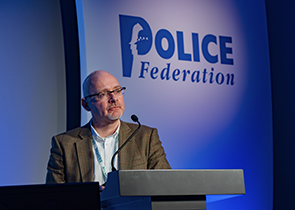Awareness

Dr Paul Jackson discusses workplace attitude towards fatigue:
If anything is going to change, we need to change the culture around fatigue.

How to recognise Fatigue
Fatigued, not Stress!
The long-term effects of fatigue can be similar to stress, so it is not surprising for people who are suffering from fatigue to think they are stressed.
Of course, work can cause both stress and fatigue and they often go together, but it is important to understand as much as possible about fatigue so that you can take the correct action.
Fatigue symptoms are, but not exclusively, often:
- Insomnia (often brought about by irregular shift patterns)
- Inability to concentrate –
- Unable to focus on more than one thing at a time
- Difficulty remembering names, numbers or certain words
- Unable to recall recent events
- Being slow to react
- Collectively these may be referred to ‘brain fog’.
- Depression and anxiety
- Overly emotional
- Headaches
- Confusion (see brain fog)
- Dizziness
- Blurred vision
- Unexplained weight loss or gain
- Digestive problems
Someone suffering from fatigue, by comparison with their normal ability, may be likely to:
- Find it hard to concentrate, make clear decisions or take in and act on new information
- Have frequent, or more frequent lapses of attention or memory
- React slowly, or more slowly (to hazards arising in the workplace)
- Make more errors
- Be overly irritable
- Occasionally fall asleep at work – momentarily or for several minutes
- Have low motivation or interest in their work
This means that people with fatigue are not only likely to be performing badly, they can also pose a danger to themselves and others.
Over time, they also risk damaging their health.
Key is to recognise the signs of fatigue
If you would describe your feelings of tiredness as:
‘a different type of tiredness from what you usually experience’, it is likely to be fatigue.
It’s worth remembering too, often we may try exercise to combat tiredness, but exercise can exacerbate fatigue and leave you feeling exhausted for days on end. Try light exercise to see how your body responds.
‘Brain Fog’ – this catch-all refers to issues with concentration, memory and cognitive ability.
- problems remembering certain words, names or numbers
- difficulty concentrating or difficulty focusing on more than one thing at a time
- problems remembering things that happened recently
- being slow to speak or react to things
Sleep
Fatigue can have very real consequences on your quality of sleep.
For example:
- On waking you feel unusually stiff with almost flu-like symptoms
- Your sleep is restless and you wake often
- You do not feel well rested after sleep; sleep is no-longer refreshing
- You are constantly sleepy during your waking hours
More severe symptoms of fatigue/chronic fatigue can include:
- muscle or joint pain
- headaches
- a sore throat or sore glands that are not swollen
- flu-like symptoms
- feeling sick or dizzy
- fast or irregular heartbeats (heart palpitations)
This may lead to a difficulty moving and carrying out your usual daily activities and impact your ability to work at all.
Useful links with external agencies
The Association of Ambulance Chief Executives has done a lot of research on managing fatigue and the impact fatigue has on both drivers and staff and the public that they come into contact with.
See the below links to some of the work and support provided to staff that we believe is of help to our members too.
Fatigue & Sleep Deprivation Guidance – The BMA
Case Study: Fatigue Related Ambulance RTC – College of Paramedics
Top Tips on Managing Sleep & Shiftwork
Shiftwork in Healthcare – NHS Employers
Monitoring & Optimising Sleep – Monash University
Optimising Sleep for Nigh Shifts – The BMJ
Supporting the Wellbeing of Shift Workers in Healthcare – The NHS Staff Council
Practical Tips for Shift Workers – The Sleep Charity
Fatigue Tool – EEAST & Association of Anaesthetists
Working Well at Night – EEAST & Association of Anaesthetists
Other useful sites pointed to
The SleepStation for Key Workers














